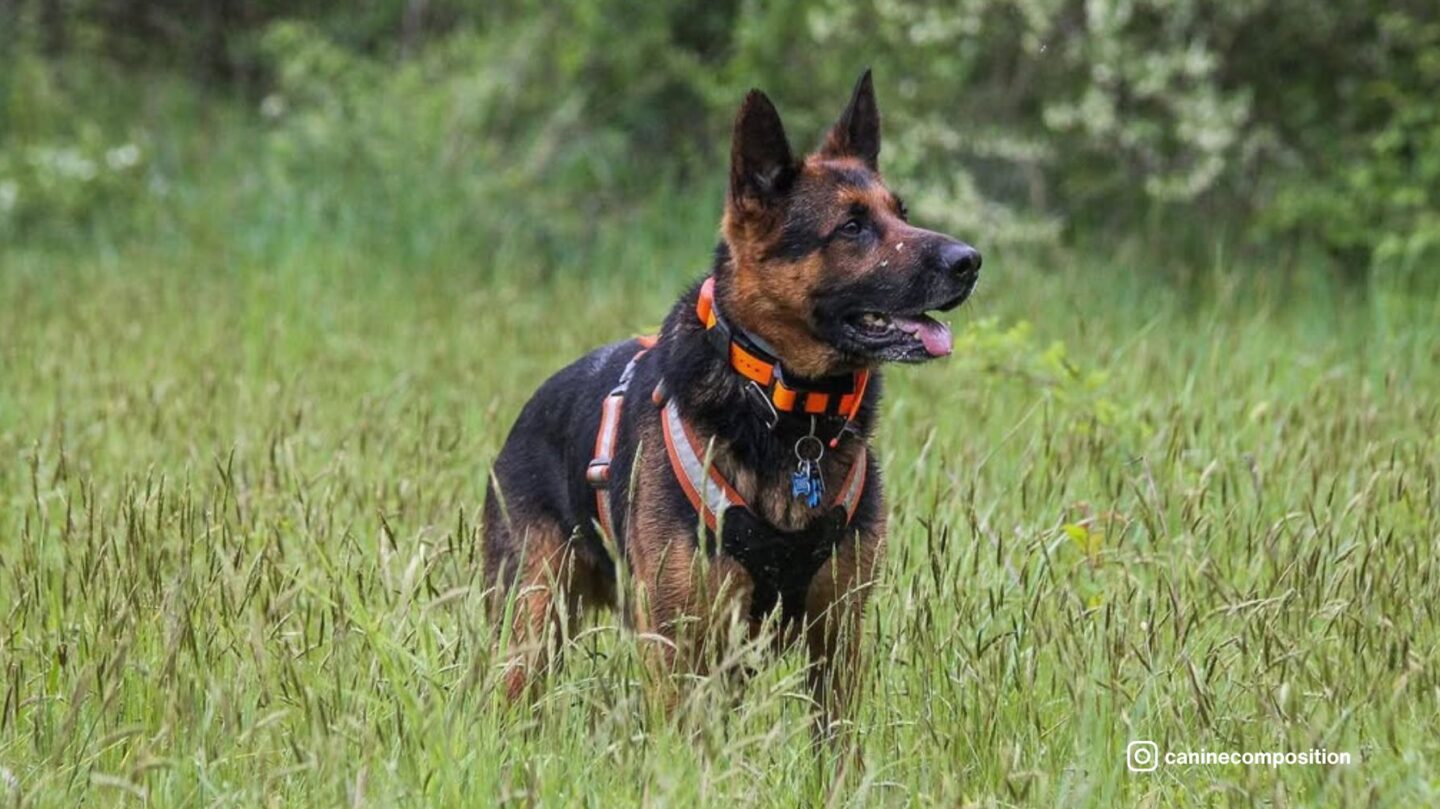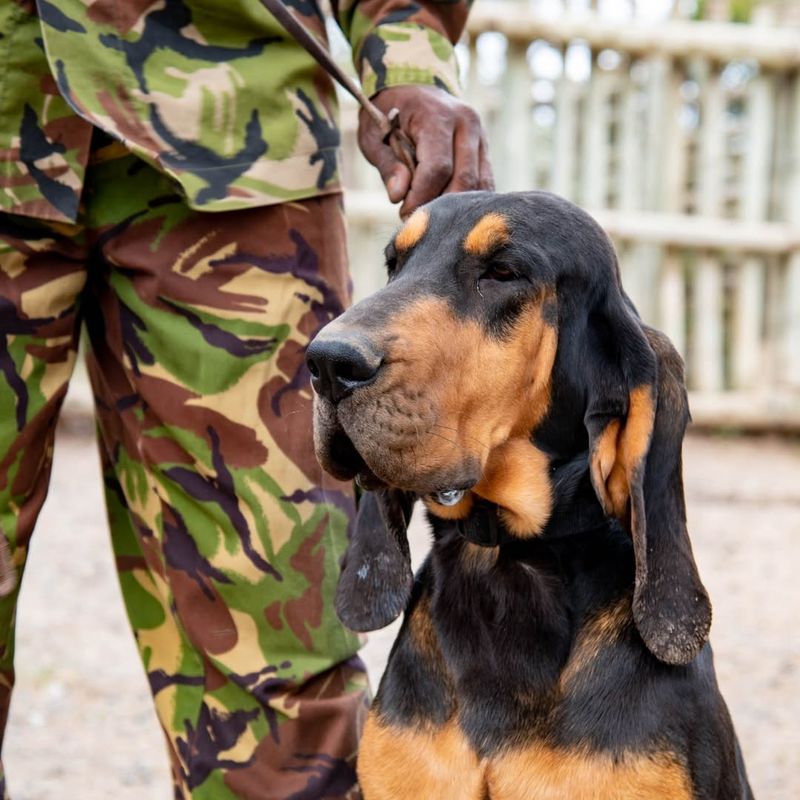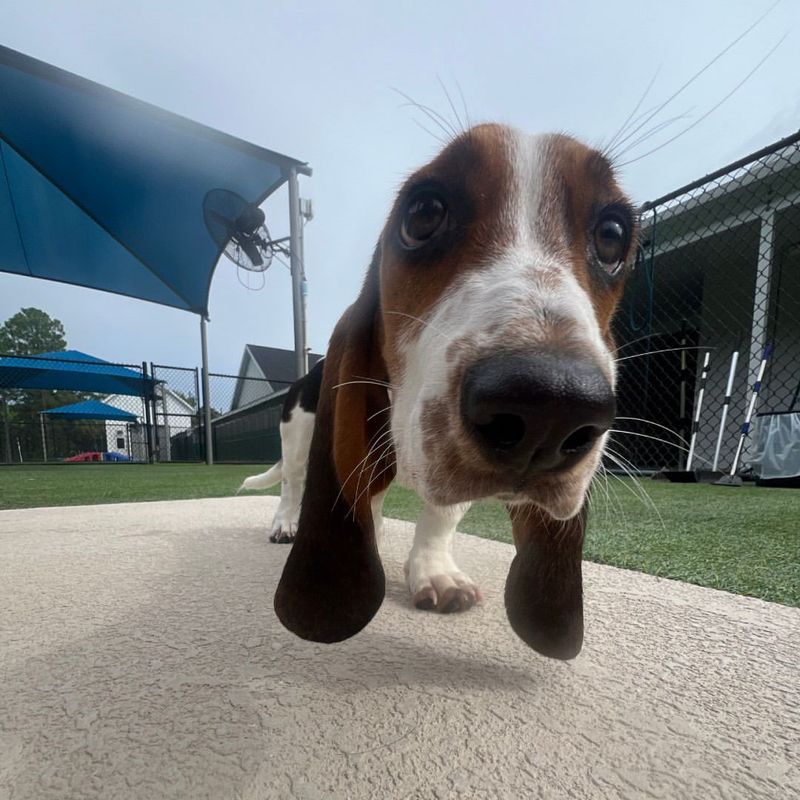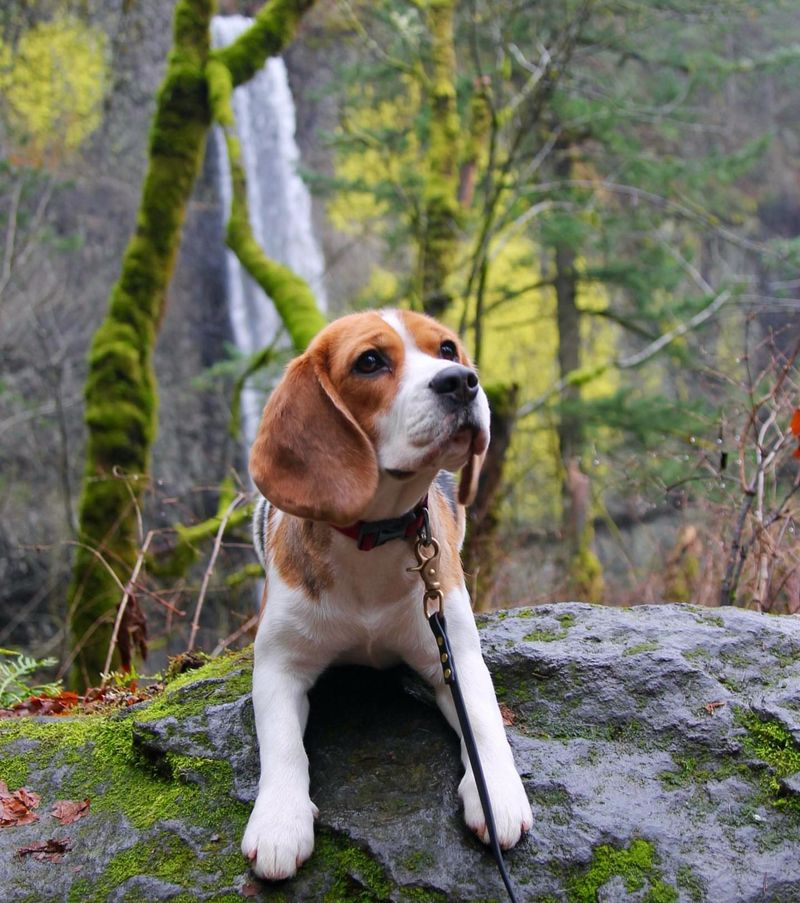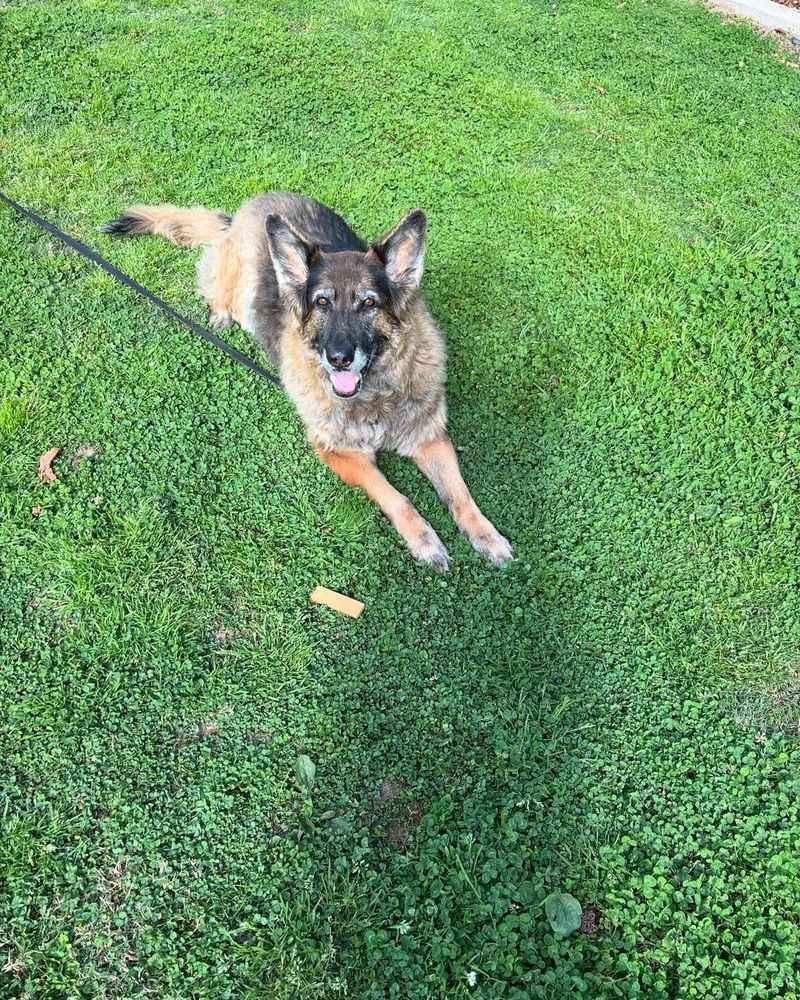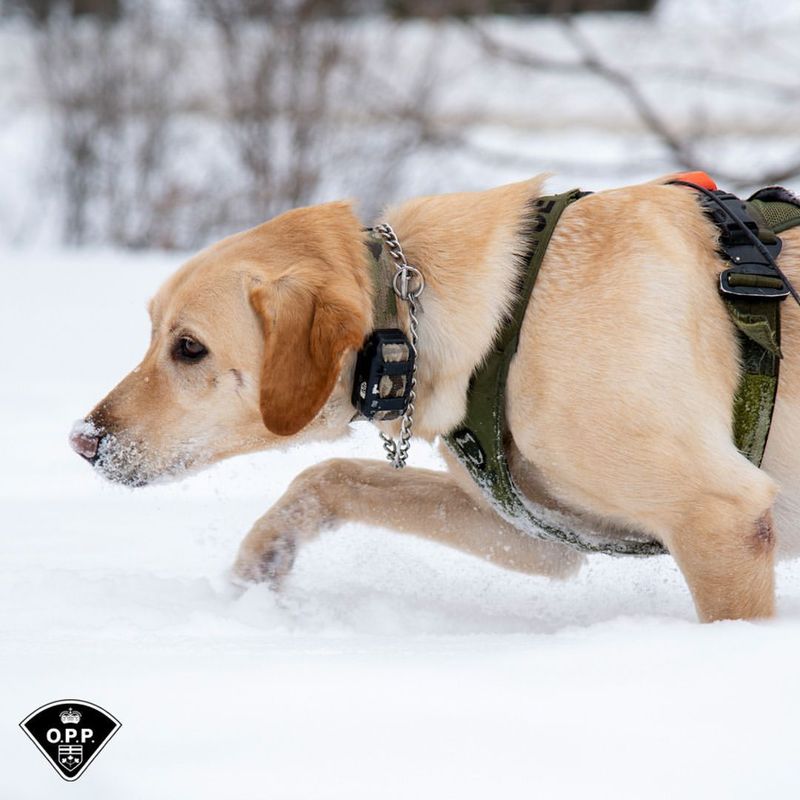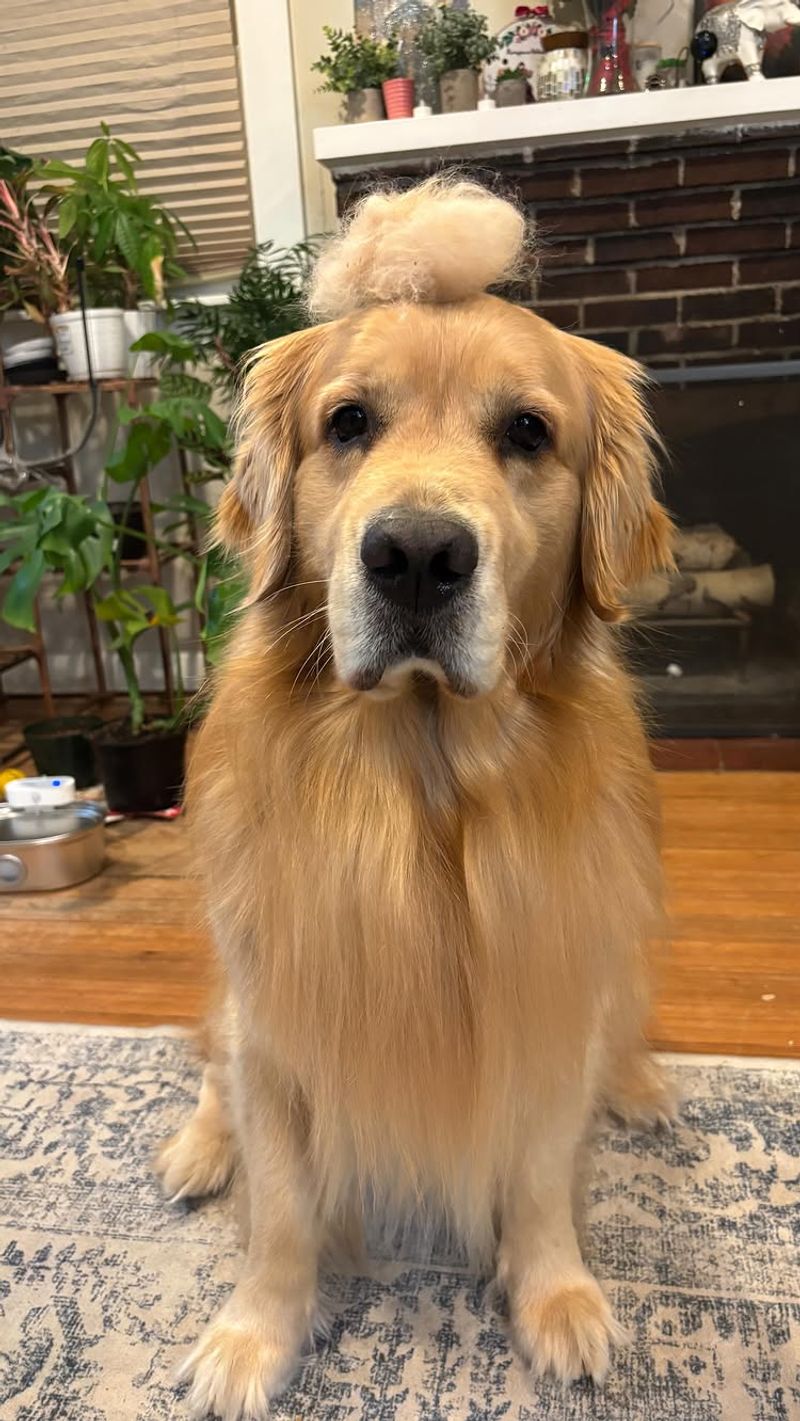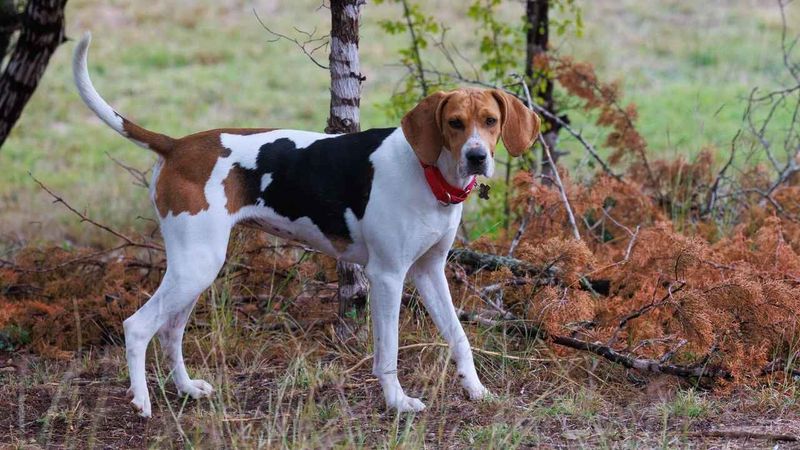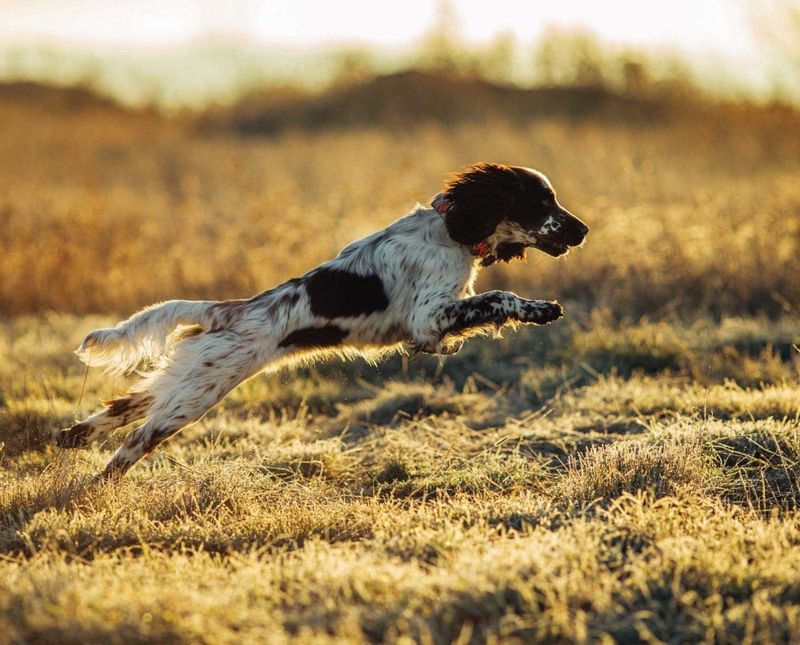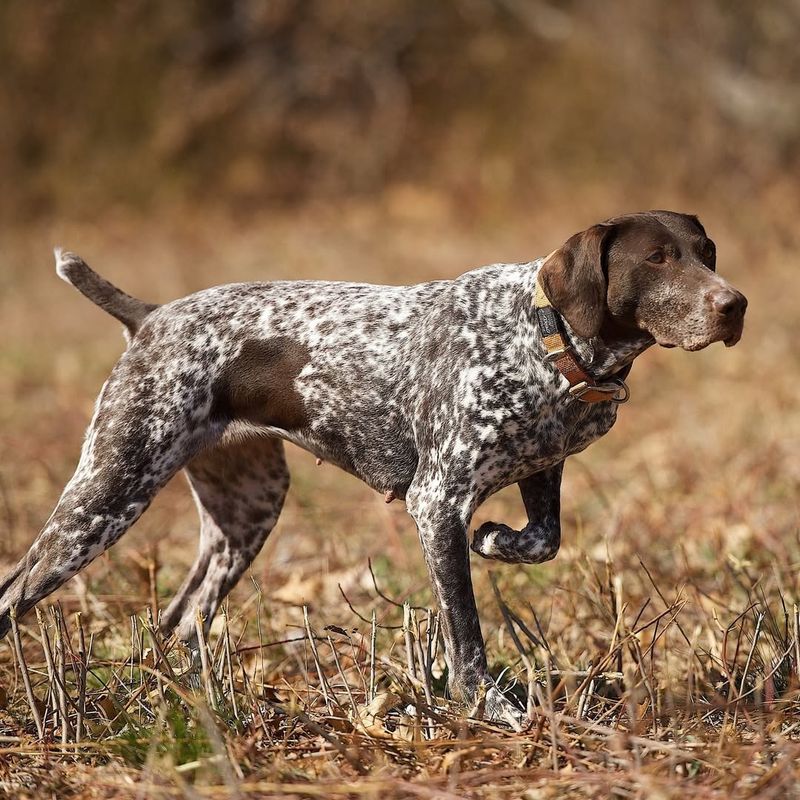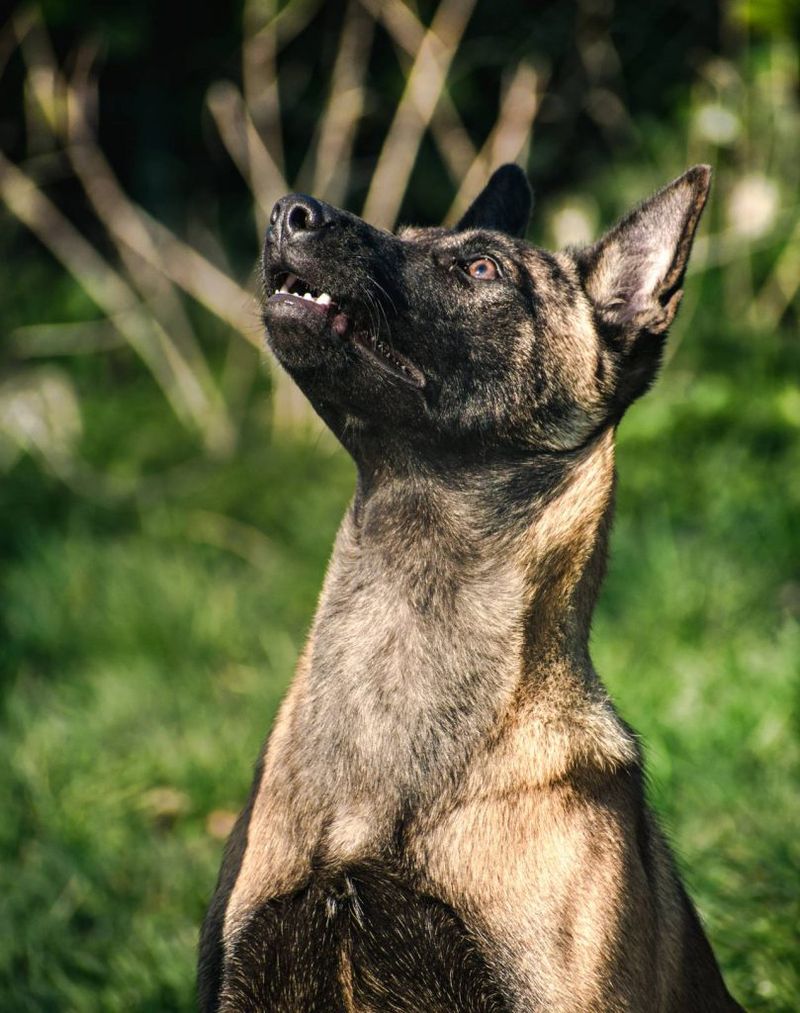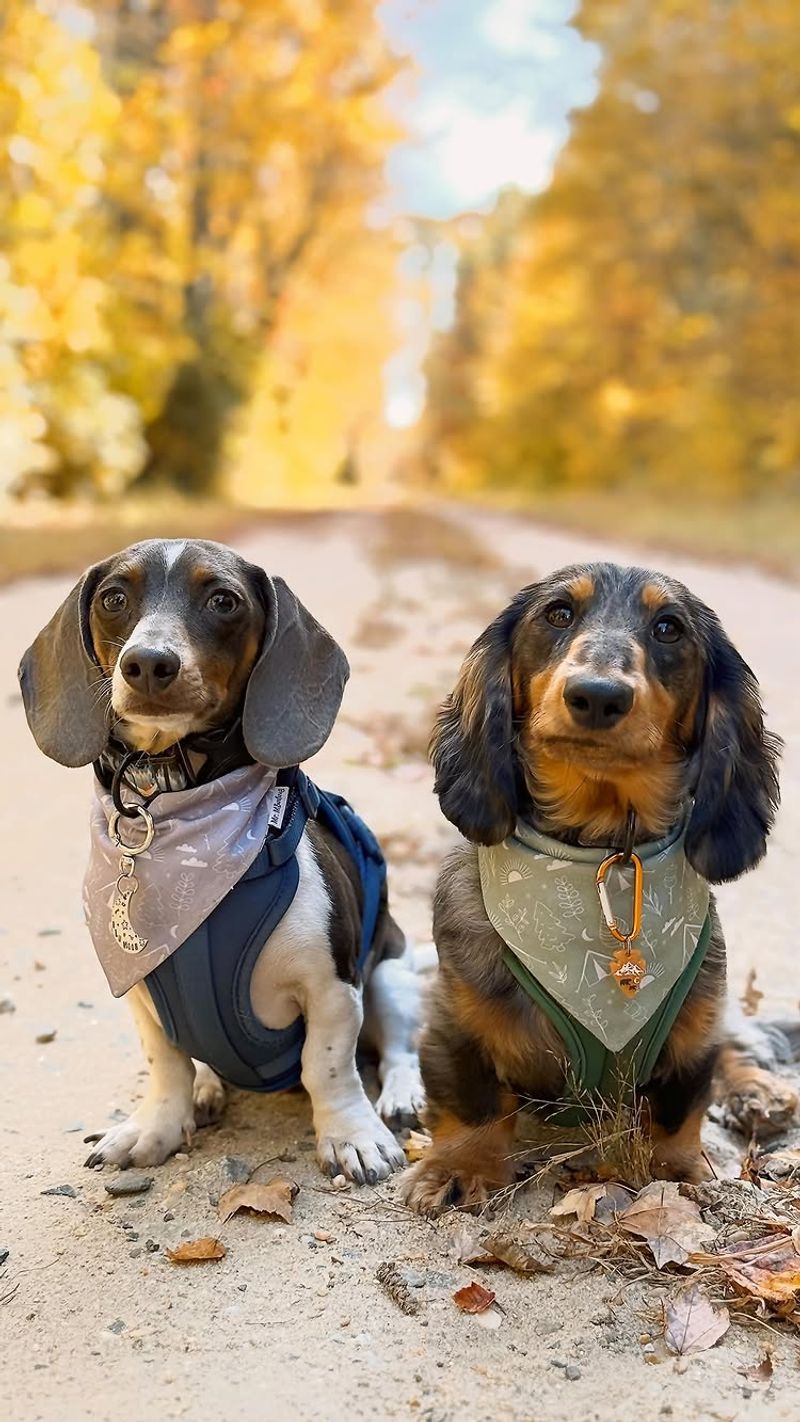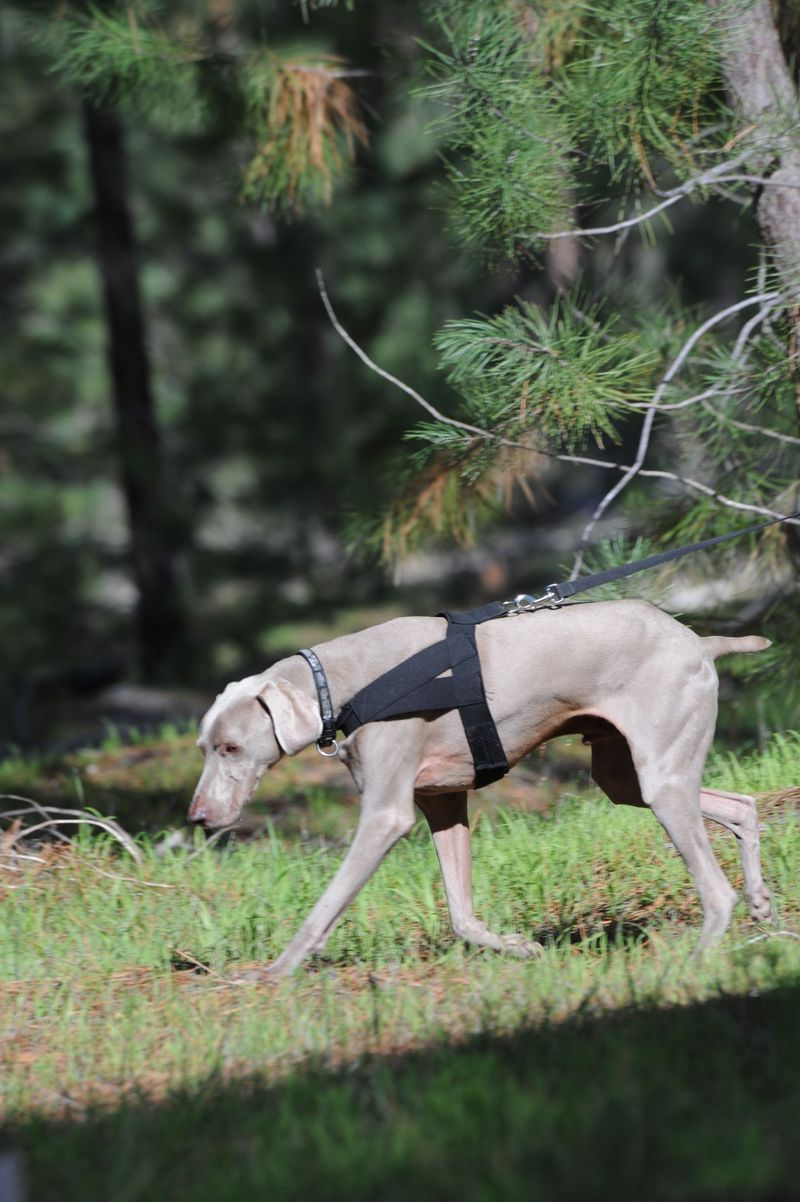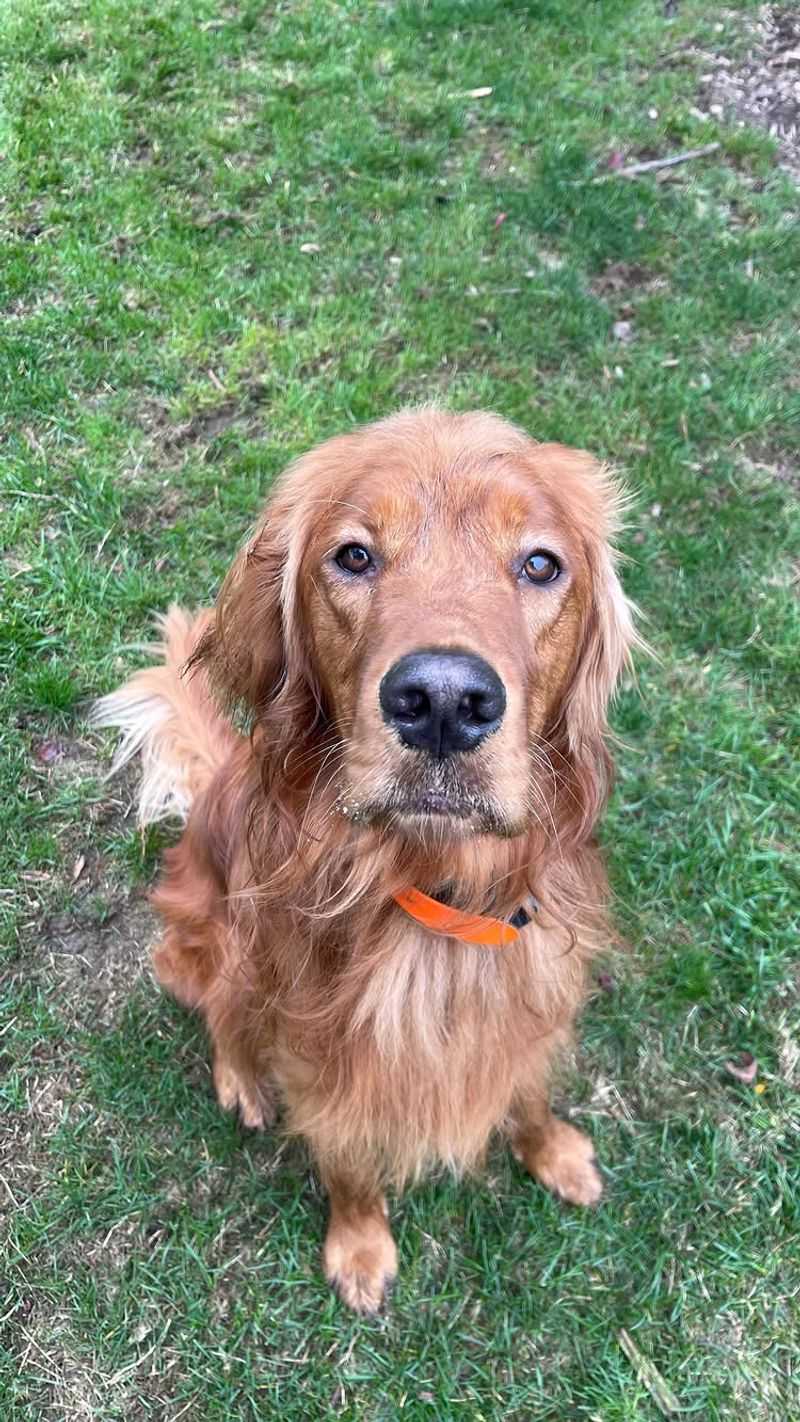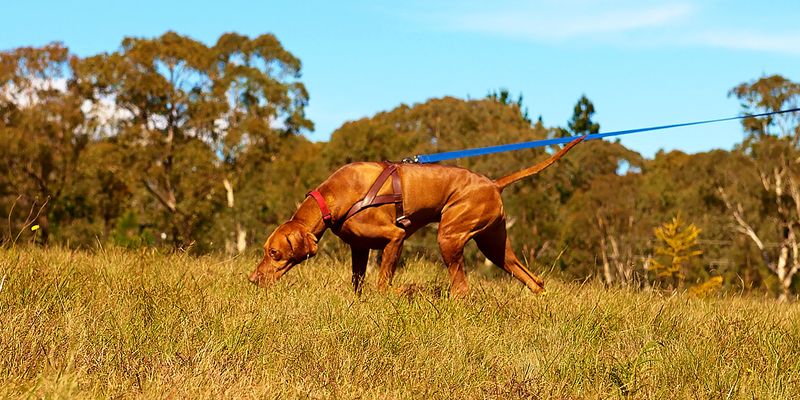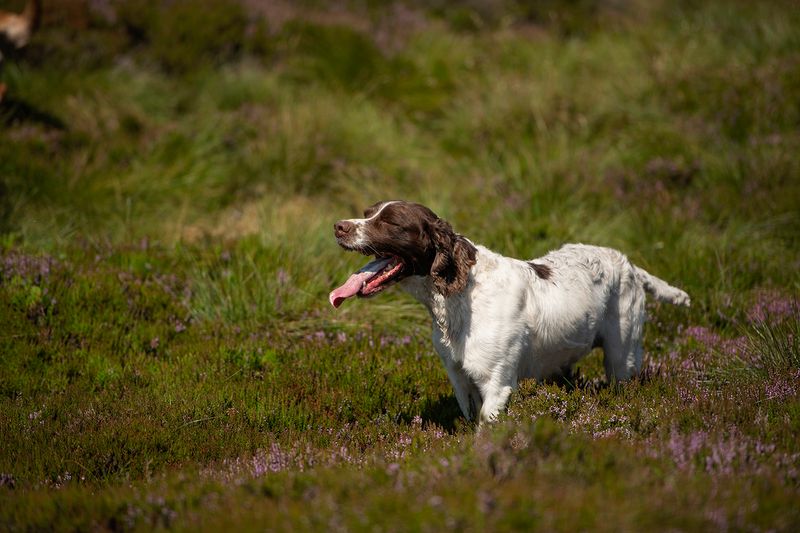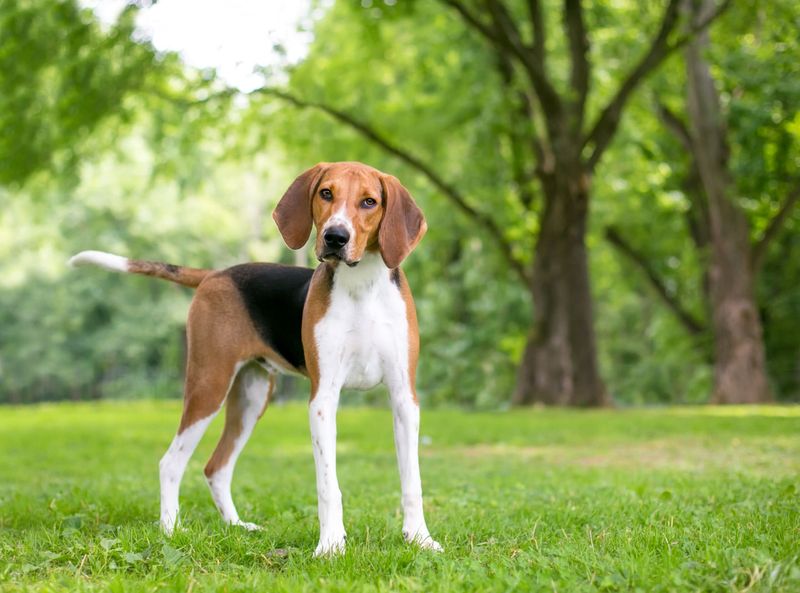Dogs have been our loyal companions for thousands of years, but there’s more to our furry friends than just wagging tails and cute faces. One of the most remarkable traits of dogs is their powerful sense of smell, which surpasses that of humans by leaps and bounds. Different breeds boast different levels of olfactory prowess, making some dogs true scent-detecting champions. Here, we explore 16 dog breeds whose noses are celebrated for their extraordinary sniffing capabilities. These breeds are not only skilled in tracking and scent detection but also in bringing joy and service to humans.
Bloodhound
Bloodhounds are renowned for their exceptional olfactory abilities. They possess approximately 300 million scent receptors, enabling them to track scents that are days old. These gentle giants are often employed in search and rescue missions. Their long ears and loose skin help capture scent particles, allowing them to excel in tracking and trailing. Bloodhounds are known to follow a scent trail for miles, showcasing their determination and stamina. Owning a Bloodhound means embracing their tracking instincts, as they will happily follow their nose wherever it leads, requiring diligent training and supervision.
Basset Hound
The Basset Hound’s nose is a profound asset, with around 220 million scent receptors. Their sense of smell is second only to the Bloodhound. These dogs are often used in hunting due to their ability to track scents over long distances. Their long ears drag on the ground, stirring up scents, while their loose skin helps trap them. Basset Hounds are methodical and deliberate in their scent tracking, making them excellent companions for hunting expeditions. While their sense of smell is unmatched, Basset Hounds require patient training to curb their independent nature.
Beagle
Beagles are small hounds with a big nose, featuring about 220 million scent receptors. They are often employed in detection roles at airports, owing to their keen sense of smell. Their ability to focus on a scent despite environmental distractions makes them ideal for tracking tasks. Beagles are enthusiastic and energetic, often following their noses with great determination. These dogs thrive on mental and physical stimulation, making regular engagement essential. While their tracking instincts are strong, they need structured training to align with household expectations.
German Shepherd
German Shepherds are celebrated for their intelligence and loyalty, combined with excellent olfactory senses. They’re often found in police and military roles, utilizing their nose for detection and search tasks. Their strong work ethic and sharp senses allow them to excel in scent work, from detecting explosives to finding missing persons. German Shepherds are versatile dogs with a keen ability to learn and adapt. Regular training keeps them engaged, fostering their natural instincts. While they’re known for protection, their noses are equally vital in their service roles.
Labrador Retriever
Labradors are friendly and outgoing dogs with a remarkable sense of smell, making them one of the top choices for scent detection work. They possess about 300 million scent receptors, aiding in various detection roles. Labradors are commonly used in search and rescue, as well as in detecting drugs and explosives, thanks to their trainability and keen noses. Their gentle disposition makes them approachable, yet focused on their tasks. These dogs require regular exercise and mental stimulation, thriving in environments where they can use their noses to solve challenges.
Golden Retriever
Golden Retrievers, known for their friendly demeanor, also possess a powerful nose with excellent scenting abilities. They are often used in search and rescue efforts due to their reliable tracking skills. Their eagerness to please and intelligent nature makes them highly trainable in various scent-related tasks. Golden Retrievers can cover large areas in their search efforts, showcasing their stamina and dedication. While they are known for their companionship, their noses play a crucial role in their working capabilities, requiring regular engagement to keep them fulfilled.
Coonhound
Coonhounds possess a strong nose, tailored for tracking raccoons and other game. Their scenting ability is enhanced by their long ears and agile bodies. These hounds are known for their endurance and persistence, making them excellent hunting companions. Coonhounds work tirelessly to follow a scent, often covering challenging terrains. Training a Coonhound involves harnessing their natural instincts while providing structured tasks to stimulate their minds. Their dedication to scent work is matched by their affectionate nature at home.
Springer Spaniel
Springer Spaniels are known for their energetic nature and powerful noses. They thrive in environments where their scent-detection skills can be utilized, such as in search and rescue operations. Their ability to track scents through varied terrains makes them versatile working dogs. Springer Spaniels are eager to please, which aids in their training for scent-related tasks. Regular mental and physical stimulation is vital for these dogs to harness their energy and olfactory prowess. Their noses are not only tools for work but also for play, enjoying scent games and challenges.
Pointer
Pointers are celebrated for their instinctive tracking skills, with a nose that’s highly sensitive to scents. This breed is often associated with hunting, particularly for birds. Their elegant stance and focused demeanor while pointing at prey is a testament to their tracking abilities. Pointers are energetic and require ample exercise to satisfy their active nature. Training a Pointer involves channeling their natural hunting instincts into structured activities. Their keen sense of smell and determination make them steadfast companions in the field.
Belgian Malinois
The Belgian Malinois is a breed known for its intelligence and versatility, with a keen nose that serves them well in various roles. They are commonly employed in police and military operations. Their scenting ability is coupled with a strong work ethic, making them ideal for detection tasks. Belgian Malinois are agile and focused, often excelling in demanding environments. These dogs thrive on challenges, requiring regular training to hone their skills and keep them engaged. Their dedication to scent work is complemented by their loyalty and protective nature.
Dachshund
Dachshunds may be small, but their noses are mighty, designed for tracking burrowing animals. They possess a keen sense of smell, making them adept at following scent trails. Their long bodies and short legs allow them to maneuver through dense underbrush while tracking. Dachshunds are determined and persistent in their scent pursuits. Training a Dachshund involves channeling their natural instincts into structured activities, as they enjoy scent games and challenges. Despite their size, they exhibit a big personality and robust tracking abilities.
Weimaraner
Weimaraners are known for their sleek appearance and powerful noses, often used in hunting for their tracking prowess. They have a keen sense of smell, enabling them to follow scent trails with ease. These dogs are energetic and require ample exercise to satisfy their active nature, thriving in environments where they can utilize their scenting skills. Weimaraners are intelligent and trainable, making them excellent companions for both work and play. Regular mental and physical activities are essential to keep their tracking instincts sharp and minds engaged.
Cocker Spaniel
Cocker Spaniels are not just beloved for their gentle nature but also for their extraordinary noses. They are often seen in hunting roles, thanks to their scent-tracking abilities. Their ability to detect and follow scents, especially in dense vegetation, is a significant asset in the field. Cocker Spaniels are eager learners, often excelling in scent-related training tasks. These dogs require regular mental stimulation and exercise to keep them content and engaged. Their noses are as much a tool for work as they are for play, enjoying scent games in various settings.
Hungarian Vizsla
Hungarian Vizslas are known for their striking appearance and strong sense of smell. Often used in hunting, their noses help them track and point game with precision. These dogs are energetic and thrive in environments where they can engage their scenting abilities. Hungarian Vizslas require regular exercise and mental stimulation to channel their energy positively. Their friendly and trainable nature makes them excellent companions for active families. Vizslas’ noses are not only vital in work but also add a layer of playfulness to their daily activities.
English Springer Spaniel
English Springer Spaniels are celebrated for their energetic disposition and excellent noses, frequently utilized in search and rescue missions. Their ability to detect scents over varied terrains is impressive. These dogs are enthusiastic and require regular exercise to stay happy, thriving in environments that challenge their scent-detection skills. English Springer Spaniels are eager learners, making them highly trainable in scent-related tasks. Their keen noses are not only essential for work but also for engaging play, enjoying activities that involve scent tracking and retrieval games.
Foxhound
Foxhounds are built for tracking, with noses that are highly sensitive to scents. Traditionally used in fox hunting, their olfactory skills are exceptional. These hounds are known for their endurance and determination, often covering long distances in pursuit of a scent. Foxhounds require regular activity and mental engagement to channel their energy effectively. While they are adept at scent work, they also enjoy companionship and play, making them versatile dogs both in the field and at home.
